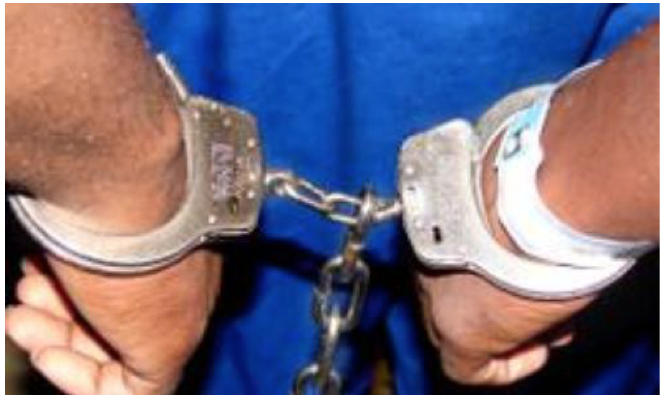CommentsVIEW FROM INSIDE--A recent Los Angeles Times story explored the recent drop in arrest rates, both in Los Angeles and across the state, stating it was "unclear" why arrest rates have dropped as crime has risen. While we can't speak for other agencies, we can inform the public about some reasons for the arrest rate decline in jurisdictions patrolled by the Los Angeles County Sheriff's Department.
One key factor is the lack of unobligated patrol time due to short staffing in our patrol functions. As detailed in a National Institute of Justice report, "Preventing Crime: What Works, What Doesn't, What's Promising" proactive policing, where deputies interact with the public and investigate suspicious activity and persons, produces arrests and deters crime. However, instead of engaging in those functions, deputies now spend time racing from call to call, leaving little time for proactive patrol.
In addition, short staffing of the Department leads to patrol deputies being forced to work multiple overtime shifts in a week, which often lengthens a shift to 16 hours. Additionally, deputies are being ordered to work on regularly scheduled days off. The fatigue factor of long shifts and the realization that an arrest towards the end of a shift will lead to multiple hours in paperwork and additional hours in processing if a booking takes place, combined with compression of work weeks, is certainly a discouragement to making an arrest. In addition, making an arrest often requires backup, the availability of which many times is in question due to short staffing.
It is not, however, just a lack of resources which have led to a drop in arrest rates. While the article implies a decrease in conjunction with a rising crime rate means crimes are not being solved and suspects identified, that is overstated. Since arrests are most often discretionary acts, a deputy may simply write a report documenting the crime, leaving it to prosecutors to file charges and send a notification letter to the defendant with an appearance date for arraignment. An arrest simply jump starts this process. This then raises the question: Why would a deputy forego an arrest and instead only write a report? Simple. Making an arrest presents an opportunity for second guessing by the Department, politicians, and the public.
The Department has instituted a culture that emphasizes discipline not praise for hard working patrol deputies, with a singular focus on looking for the "bad" in every arrest or public contact. The default response of line supervisors and higher-ups is to second guess deputies and look for "bad tactics" or outcomes, instead of supporting proactive deputies, or praising them as examples to be followed. Since discretion allows a deputy to solve a crime and document it with a report, the understandable human behavior is to avoid making an arrest if that will simply invite second guessing and undue scrutiny.
Then, of course, there is the politics of law enforcement; that is, politicians. The lack of support for deputies doesn't just exist within the Department but is amplified by politicians eager to grab the limelight and slam rank-and-file law enforcement whenever an incident does not end in textbook fashion. Former NYPD Commissioner and LAPD Police Chief Bill Bratton once observed, "Police work is not always pretty. In my years in law enforcement, I've learned not to make a judgment until I have all the facts." Sadly, that is not the case with many politicians. Far beyond just a lack of support, the willingness of elected and self-appointed experts to rush to the cameras and pass judgment on rank-and-file law enforcement officers for incidents where they scarcely know the details--and what "details" they often know later prove to be false--certainly causes pause in engaging in arrests or proactive law enforcement.
Further, whether it is simply a vocal minority receiving outsized attention on their views of law enforcement, or in fact a larger segment of society, it is unquestionable that as a whole there is less civility towards law enforcement by the general public. Society has become impatient, rude, judgmental and sanctimonious towards law enforcement, and it should be no wonder why deputies are hesitant to engage in actions such as arrest which leads to second guessing.
A recent survey in a leading law enforcement publication found the major decrease in proactive policing across the nation was in large part because of "significant correlations between leadership, media, community relations, and training to their individual effects upon decreased proactivity." As mentioned above, the decrease in arrests and a rising crime rate does not mean that crimes are not being solved and suspects identified. However, if one wants to start searching for the reasons for a decrease in arrests while there has been an increase in crime, the responses of nearly 500 officers and deputies in this survey and the issues detailed in this blog provide a solid starting point.
(The Association for Los Angeles Deputy Sheriffs (ALADS) is the collective bargaining agent representing more than 7,900 deputy sheriffs and district attorney investigators working in Los Angeles County.)
-cw
Explore
Our mission is to promote and facilitate civic engagement and neighborhood empowerment, and to hold area government and its politicians accountable.

 CityWatch Los Angeles
Politics. Perspective. Participation.
CityWatch Los Angeles
Politics. Perspective. Participation.
17
Thu, Apr















